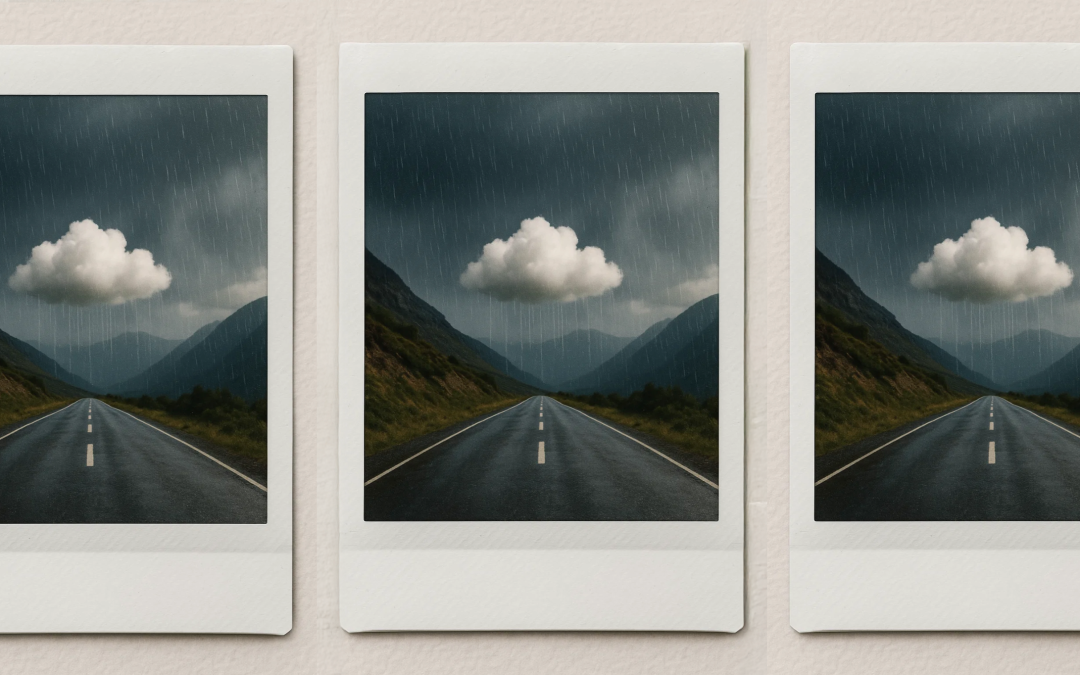Here’s something the wellness world, conveniently leaves out: meditation can make you more tired.
Yeah, I said it. Everyone wants to hype up the benefits, stress, relief, emotional balance, better sleep, laser, focus, all the good words. And yes, those benefits are real. But meditation also has a metabolic cost. It literally takes energy from your body to do it.
And if you’ve ever tried to “be consistent” with meditation only to feel drained after a session, that’s not in your head and it’s the real reason people ask “why does meditation make me feel tired?”
Why Does Meditation Make Me Feel Tired?
When you’re being mindful, your brain isn’t cruising on autopilot. You’re yanking yourself out of the default mode network (DMN). The DMN is the constant background hum that runs when your mind is wandering, daydreaming, or just doing its thing without much effort.
The DMN isn’t a bad thing. It’s actually an energy conserving system. It keeps things efficient. But mindfulness asks you to shut that system down and instead of fire up the prefrontal cortex, the part of your brain, responsible for focus, decision-making, and regulating attention.
And, that shift is expensive! Your brain, which is only about 2% of your body weight, already hogs 20% of your energy. When you pull it out of default mode and into deliberate focus, that energy demand spikes. Glucose consumption goes up, oxygen consumption, up — all of it — consumed at a faster rate. Which means that “simple” practice of paying attention to your breath? Yeah, it’s actually a physiological workout.
No wonder people feel tired after.
This Is The Part They Don’t Tell You
This is the double edge, sword of mindfulness:
- On one side, yes, it requires your brain, helps you regulate emotions, strengthen attention, calms your nervous system, all of it.
- But on the other side, at least at the beginning, it takes more than it gives.
And here’s what frustrates me: no one talks about this. Wellness apps, meditation, teachers, self-help books, they all lead with the benefit benefits, but skip over the reality that focussed attention burns fuel and often doesn’t feel the greatest at the start.
So what happens? Burnt out, stressed out people, the exact people meditation could help, finally give it a shot, but instead they’re left wondering “why does meditation make me feel tired instead of better?”
And since no one prepared them for that, they think they’re doing it wrong. They quit. They tap out because no one gave them the full story.
If We Were Honest, More People Would Stick With It
I honestly believe if this was part of the conversation from the start, if people knew that, yes, meditation can be tiring at first because it’s work for your brain, they’d stick with it. They wouldn’t take that first wave of exhaustion as a sign of failure. They’d understand it’s normal, it’s part of the process, and it shifts overtime as your brain adapt.
But instead, the conversation gets sugarcoated. All benefits, no cost which just sets people up to quit before the benefits even have time to show up.
Why I Use the Lucia Light
And this is why I’m so passionate about the Lucia light. Because sometimes, when you’re burnt out, you don’t have the extra energy to “work at.” You don’t have to have the reserves to drag your brain out of default mode and into focus.
This isn’t just theory for me, it’s lived experience.
When I was healing from late stage colon cancer and dealing with all the aftershocks in my body, everyone around me was preaching mindfulness and meditation. “It’ll help with the stress, it’ll help you heal, it’ll calm your system.” And I believed them. I wanted it to work. But when I actually sat down to practice it? I was already fried and dragging myself through the day.
And instead of feeling better, medication made me feel worse. My brain didn’t have anything left to give, and asking it to “focus on the present moment” just felt like another demand on a system that was already running on fumes.
That’s when I found the Lucia light. And it was different. With the light, I didn’t have to try. I didn’t have to force my focus or burn through the last scrapes of energy I had. I just close my eyes, let the light do its thing, and for the first time in a long time, I could access that deep state of calm and relaxation without any effort
The Lucia light is a jumpstart. A shortcut. A way to experience the benefits of deep meditation without paying upfront energetic metabolic costs. And once your system gets that reset, doesn’t feel like climbing a mountain anymore. It actually feels possible.
Come once, twice, three times, and you’ve already given yourself a huge foothold. From there, you can actually build a practice without tapping out at the starting line.
Final Thoughts
Meditation is powerful, but let’s stop pretending it’s free. It cost energy it can be draining. And if you’re already running on empty, that can feel impossible.
No one talks about this. But I think we should. Because the truth is: the more honest, we are about the challenges, the more people will actually stick with the practice, long enough to experience the difference and possibly have ripple out effects to the world.
QUICK FAQs
Why does meditation make me feel tired?
Meditation is metabolically demanding which means yourr brain burns more energy focusing than daydreaming.
Is it normal to feel worse after meditating?
Completely. Many people quit because no one warns them that it can be draining at first.
What app is best if I’m a total beginner and want to learn to meditate?
I highly recommend Headspace.
How does the Lucia Light help?
It induces meditative states without requiring the brain to exert as much energy, making it easier for burnt-out people to access the benefits. You can book your first-timer experience here.


Recent Comments